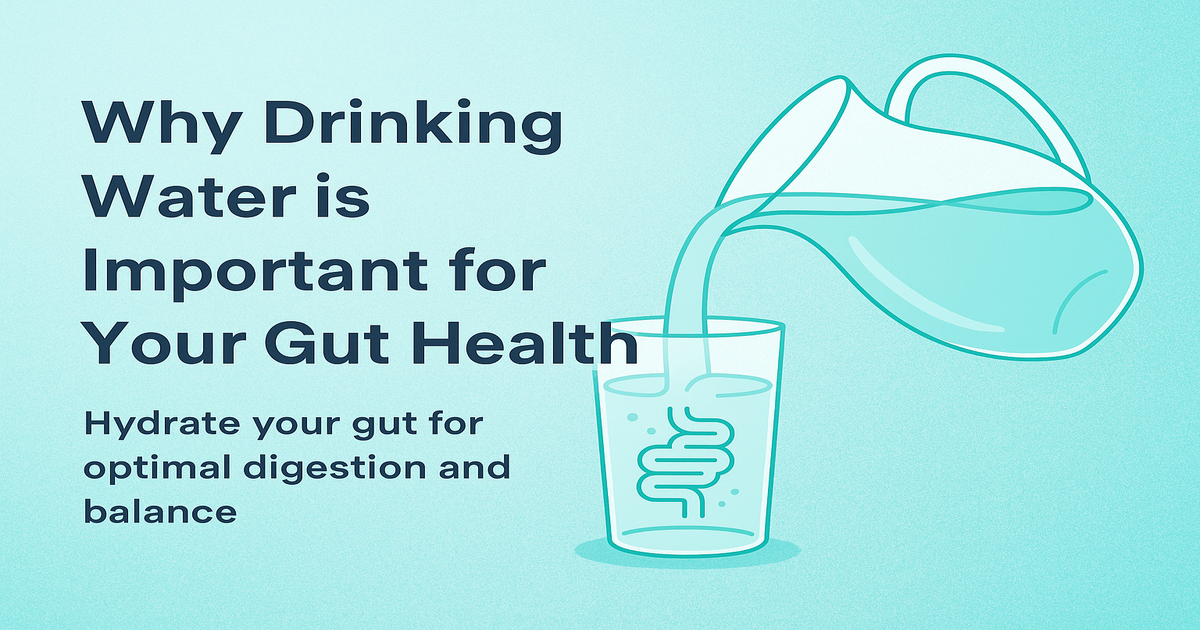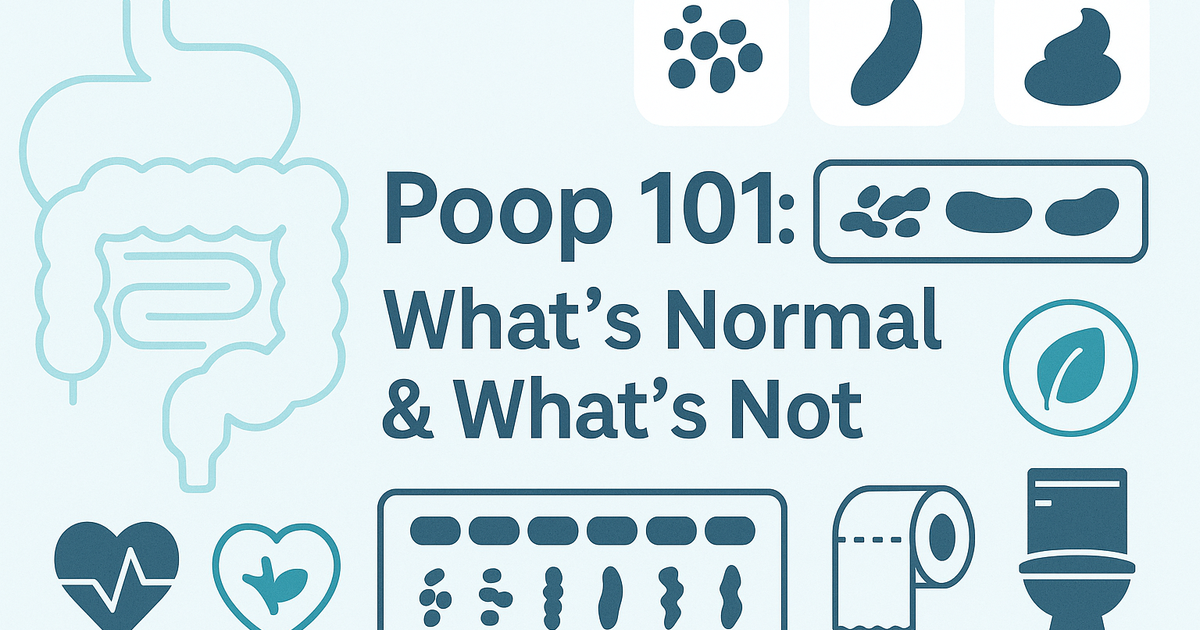Why Drinking Water Is Essential for Gut Health

Stay Updated
Get the latest gut health tips and research delivered straight to your inbox.
By subscribing, you agree to receive our newsletter. You can unsubscribe at any time.
When it comes to gut health, we often focus on probiotics, fiber, and food choices — but we forget one of the simplest (and most powerful) tools: water. Staying hydrated is crucial for digestion, nutrient absorption, and keeping your gut microbiome balanced.
Here’s why water deserves a bigger spotlight in your gut health routine.
1. Water Keeps Digestion Running Smoothly
Your digestive system needs fluids to break down food properly. From saliva in your mouth to stomach acid and intestinal fluids, water plays a role in every stage of digestion. Without enough of it, everything slows down — leading to discomfort, gas, and bloating.
2. Hydration Supports Your Gut Lining
Your gut lining is like your body's gatekeeper, protecting you from harmful bacteria and toxins while absorbing nutrients. But it needs proper hydration to stay strong. Dehydration can make your gut lining more permeable, increasing your risk for “leaky gut” and inflammation.
3. Water Affects the Balance of Good Bacteria
Your gut is home to trillions of bacteria, and the good ones love a well-hydrated environment. When you’re dehydrated, it can throw off the balance, giving harmful bacteria an opportunity to thrive — which can affect everything from immunity to mood.
4. Hydration Helps Prevent Constipation and Supports Digestion
Water keeps everything moving through your digestive tract. When you're dehydrated, your colon pulls more water from your stool, making it harder and more difficult to pass. This can lead to bloating, cramping, and constipation — all signs of a sluggish gut.
Drinking enough water daily supports smooth digestion, nutrient absorption, and regular bowel movements. Customizable reminders in the FlareCare app can help you build the habit without the guesswork.
5. It Helps Your Body Detox Naturally
Your liver and kidneys need water to flush out waste and toxins. Without it, your body becomes less efficient at detoxification — which can show up as fatigue, skin issues, and poor digestion. Think of water as your body’s natural cleaning system.
How Much Water Should You Drink?
There’s no one-size-fits-all, but a good rule of thumb is around 8 cups (64 oz) per day. You may need more if you're active, live in a hot climate, or are managing a digestive issue like IBD, IBS, or chronic constipation.
FlareCare lets you track your water intake daily and set personal goals — a simple but effective way to stay on top of hydration and gut health.
Small Habit, Big Gut Impact
Water may seem basic, but it's foundational. If you're dealing with gut symptoms, low energy, or irregular digestion, increasing your water intake could be the easiest first step toward improvement.
👉 Want to track your hydration and gut health in one place?
Download FlareCare and start logging today.
💧 You Might Also Be Interested In:
Stay Updated
Get the latest gut health tips and research delivered straight to your inbox.
By subscribing, you agree to receive our newsletter. You can unsubscribe at any time.
Related Posts

Why a Bowel Movement Tracker Can Change Your Life with IBD
Tracking your bowel movements may seem simple, but it can dramatically improve how you manage Crohn’s or colitis. Learn how the FlareCare app helps you log symptoms, spot flares early, and take control of your gut health.

Poop 101: What’s Normal, What’s Not, and What Your Poop Is Telling You
Green? Yellow? Five times a day? Here's what your poop could be telling you — and when it's time to pay attention to your gut health.

5 Subtle Signs Your Gut Might Be Trying to Tell You Something
Your gut doesn’t always shout when something’s wrong — sometimes it whispers. From bloating and fatigue to subtle shifts in mood or digestion, this guide breaks down five overlooked signs your gut might need support — and how to start tracking them.